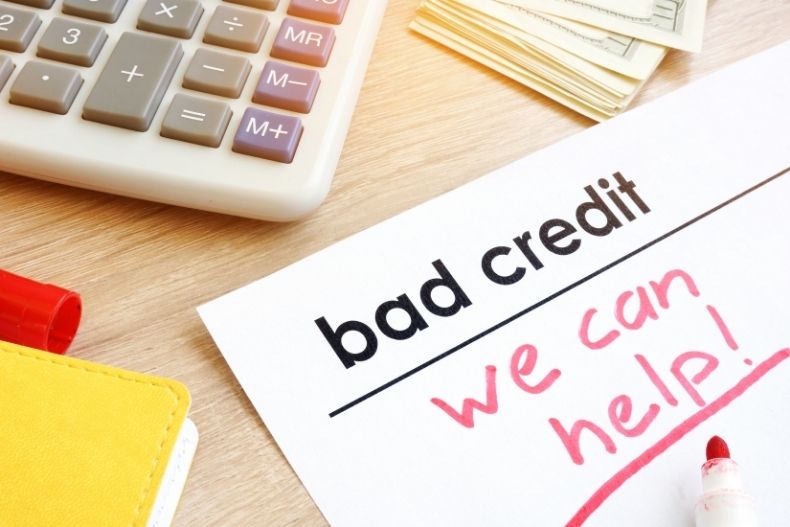When you’re looking to get a loan, the biggest factor your bank or lender will consider is your credit score. If you have good credit then typically you will be approved for better loans, while the opposite is true if you have bad credit. But that doesn’t mean that you won’t be approved for a loan at all. Whether you’re applying for a loan online or are going to your local bank, there are still a few ways that you can get that loan.
Here’s everything you need to know about bad credit and how to get a loan that is right for you and your financial situation.

What is bad credit?
If you have ‘bad credit,’ it means that companies view your credit history negatively. This can make it difficult for you to borrow money or access certain services. However, keep in mind that each company has its own set of criteria for evaluating your credit history, and some may see you more favorably than others.
If you have a poor credit score, it could be due to negative influences on your credit report, such as:
- Late payments
- Defaults
- County Court Judgements
- An IVA, DMP, or DRO
- Bankruptcy
- There are too many hard searches (for example, these are recorded when you apply for credit)
Another cause for your bad credit is that you might not have enough credit history for lenders to base their judgment on. This is a common problem if you:
- Are a young adult and have not had the time to build up a credit record yet
- Have recently moved to the UK, as credit history is not transferable across borders
- Have never taken out credit or opened a bank account
What loans can I get with bad credit?
“Bad credit loans” are specifically made for people who have a poor credit history or don’t have a credit history at all. While this is the common term for these types of loans, you won’t find banks referring to them with this name. Each back or company will use a different name for this type of loan, so make sure you do your research first to find the right one for you.
Bad credit loans typically have higher interest rates and more restrictions than other types of loans, as this helps the lender reduce the risk of you not paying them back. This doesn’t mean that these loans won’t be as useful as other loans though, as if managed responsibly they will be able to provide you with the help you may need at the time.
How can I get a bad credit loan?
The key with any loan is to make sure that you will be able to pay the money back comfortably. Getting a loan that you can afford is the most important factor to consider. Once you have worked out how much you will be able to afford to pay each month, have a look at a few different loans and compare them to find the right one that fits your financial needs and capabilities.
When looking at loans, only apply for the ones that you think you are likely to get, as each application will record a hard search on your report that can lower your credit score even further. To stop multiple hard searches from appearing on your record, it can be helpful to check your eligibility before you apply for a loan. These help you to understand your chances of approval, without impacting your credit score even more.
Managing your loan repayments
Paying back your loan on time is one of the best ways to improve your credit score, as it shows future lenders that you are a reliable borrower. Boosting your credit score in this way means that you should be able to get better credit deals and loans in the future.
To make paying off the loan easier you should :
- Draw up a monthly budget and stick to it, so that you never miss a loan payment
- If you think that you will not be able to make a payment on time, then speak to your lender as soon as possible to discuss your options
- Try not to add to your debt as you are paying off the loan, as this will damage your credit score even further and put more pressure on you when you are making the payments
How can I get a better loan with higher limits?
If you need a large loan, or you don’t want to pay high rates, then you may still be able to find a loan that works for you. While this may seem like a good idea, you have to consider that this usually comes with higher levels of risk. For example, the two types of loans you could get are:
- Secured loans – This is where you use your car, home, or other assets as collateral, meaning that you could lose it if you fall behind on your payments. However as collateral reduces the risk for the lender, they may offer you better rates or larger limits than you would get from other loans.
- Guarantor loans – Where someone you trust (usually a relative) promises to make your repayments if you are unable to. A guarantor with good credit can usually help you in getting a loan with better rates or a higher limit. But using a guarantor potentially means that the person will lose their own assets if you or they are unable to keep up the payments.